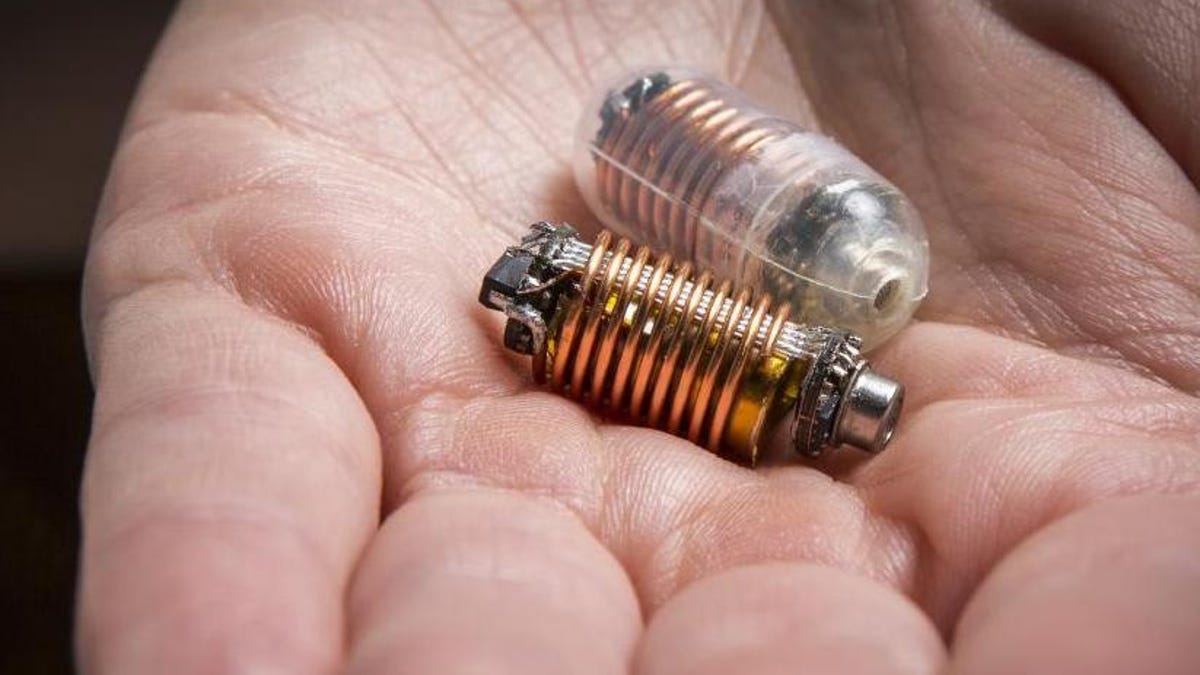Fart-tracking pill spies on your gut gases
A swallowable capsule unveils the secrets of our digestive system by following the trail of food through the gut.
For most people, the digestive tract is a mystery. We eat and drink. Hidden things happen. Maybe our stomach rumbles or noises that would make Mel Brooks giggle come out. We do it all over again.
We may soon know a lot more about our internal activity thanks to a swallowable pill that tracks the covert happenings in the human gut.
A research team led by scientists at Australia's RMIT University developed the pill, which measures hydrogen, carbon dioxide and oxygen gases in the gut in real time. This data can even be sent to a smartphone, which suggests the potential for a whole new generation of apps with names like "iFart" and "SmartToot."
"Just as body temperature is an indicator of general health, the concentration of gases produced by the microbiome is an indicator of gut health," wrote University of Nebraska mechanical-engineering professor Benjamin Terry in a commentary about the capsule. "More valuable still is an understanding of the gas concentration profile along the entire length of the gut."
The rendering on the left shows the components of the capsule. The device on the right is the receiver used to gather the data from the capsule.
The capsule is the size of a vitamin pill, and the first trials have already turned out some fascinating new information about what's happening in the human digestive tract.
"We found that the stomach releases oxidizing chemicals to break down and beat foreign compounds that are staying in the stomach for longer than usual," said study lead Kourosh Kalantar-zadeh with RMIT. Kalantar-zadeh suggested this could represent the first-ever observations of a "gastric protection system against foreign bodies."
The pills consist of a gas-permeable membrane, gas and temperature sensors, a microcontroller, batteries, antennas and a wireless transmitter. It can stay in the body for days working its way though the gastrointestinal tract.
The human trials involved seven people on low and high-fiber diets. The capsule was able to accurately detect the onset of food fermentation. The team used ultrasound to compare the location of the capsule in the body with the changes in gases.
The researchers published a study on the capsule and the trials this week in the journal Nature Electronics under the title "A human pilot trial of ingestible electronic capsules capable of sensing different gases in the gut."
The research team is now looking into commercializing the technology. "Our ingestible sensors offer a potential diagnostic tool for many disorders of the gut from food nutrient malabsorption to colon cancer. It is good news that a less invasive procedure will now be an option for so many people in the future," said co-inventor Kyle Berean.
Tech Enabled: CNET chronicles tech's role in providing new kinds of accessibility.
Batteries Not Included: The CNET team reminds us why tech is cool.


